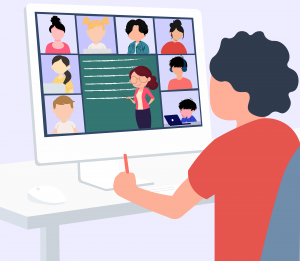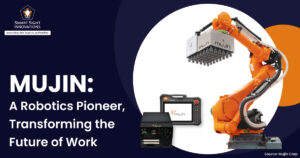 Technological advances have completely changed the way people learn, access, and process information. Training and educational materials are delivered digitally, in the form of interactive software with videos and engaging graphics. Digital systems offered by eLearning development solution firms are slowly replacing old-school methods. Now, training related content can be handled from a central location effectively and affordably.
Technological advances have completely changed the way people learn, access, and process information. Training and educational materials are delivered digitally, in the form of interactive software with videos and engaging graphics. Digital systems offered by eLearning development solution firms are slowly replacing old-school methods. Now, training related content can be handled from a central location effectively and affordably.
Which sectors appreciate eLearning solutions?
Besides education, companies in the construction, retail, information technology, and healthcare sector use eLearning solutions for training their workforce.
Several studies highlighted how digital learning came to the rescue when the coronavirus related lockdowns forced schools and colleges to remain closed. Since March this year, most custom eLearning development solution providers have reported a spike in demand for digital learning systems.
These programs play a crucial role in corporate learning strategies. Digital learning solutions have opened new doors of opportunities for corporate employees. Businesses can offer trainings easily which help upgrade the skill sets of their employees, who can then be redeployed on new projects within the organization.
What’s the difference between custom made and readymade eLearning software?
Every business or educational institution has a set of requirements and goals when it comes to training. Required features can be included in the software, and the eLearning solution can be personalized if it’s a custom made product.
Finding readymade software with all the required features may not be possible because every organization’s needs vary. Custom eLearning development solution providers design software to ensure it is suitable for the concerned organization’s human resource training. Firms can develop solutions with their in-house team or outsource the designing to professional eLearning development solution providers.
On the other hand, off-the-shelf or readymade software is based on the “one size fits all approach.” Vendors develop products as per some of the industry’s most common requirements and standards and sell them to multiple clients. Such products are based on popular business models and offer all the latest features. There are numerous readymade LMS solutions in the market.
Besides usability and cost factors, several other aspects differ between custom made and ready to use eLearning software, some of which are listed below.
- Third-party integrations
Application programming Interface Integration can help in integrating third-party elements in the software. Most off-the-shelf learning systems support API integrations. And such widgets can help in adding new features to your existing software.
When it comes to custom-made LMS, APIs can fit in the system only if designed to do so right at the blueprint stage. However, firms need to ensure they get source code access from their eLearning development solution provider.
Most of the reputed website development companies offer assistance in LMS integration projects.
- Competitive advantage
A custom-LMS designed by an eLearning development solution provider allows organizations to gain competitive advantages. The custom platform can offer exclusive features to users and help the firm or institution gain an upper hand over competitors.
On the other side, an eLearning development solution provider sells a readily available solution to multiple clients. There is no exclusivity in readymade software, as the same features are also used and shared by others. Plus, the institution needs to fine-tune, realign business processes as per the features of the off-the-shelf software.
While dealing with readymade software, entrepreneurs also need to get source code access from vendors to add unique features. And that’s often not a part of the contract. Thus, overall, custom software designed by eLearning development solution vendors can provide an e-learning platform with a competitive advantage.
- The price factor
Custom LMSs are designed as per client specifications and cannot be re-sold. So, they tend to cost more than readymade ones. Your eLearning development solution provider will consider aspects like resources required, project complexity, time, testing, deployment, and maintenance while presenting a quote.
Readymade solutions are economical, and the initial cost, as well as maintenance and support charges, are fixed. You can also opt for Software-as-a-Service LMS platforms that charge a subscription fee based on the number of users and features activated.
- Implementation
Implementation is the aspect in which ready-to-use systems have an upper hand. Off-the-shelf products are already rigorously tested and are easy to implement and deploy. Thus, developers do not need to spend time on testing and bug-fixing. On the other hand, your eLearning development solution vendor needs to polish and test the custom-made LMS for stability before deploying. They need more time for testing and implementation.
- Customization
Depending on the training requirements, the organization may need to add or remove features, revamp the UI, or modify the code for integrations. Custom software solutions designed by eLearning development solution vendors are often customizable and can be easily altered by a skilled developer.
But, when it comes to readymade LMS, most of them, especially SaaS ones, are not customizable. Put simply, only self-hosted and open-source systems designed by eLearning development solution firms are customizable.
Besides the eLearning development solution, a reputed smartphone app development company can also help deploy Android or iOS application versions of the LMS.












